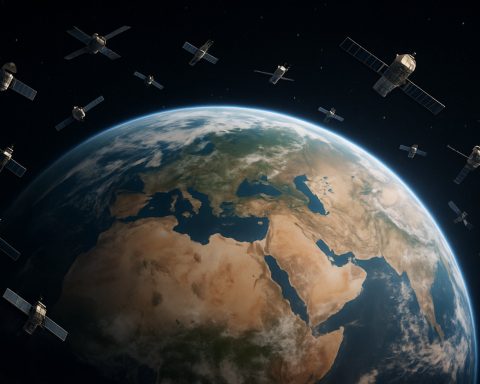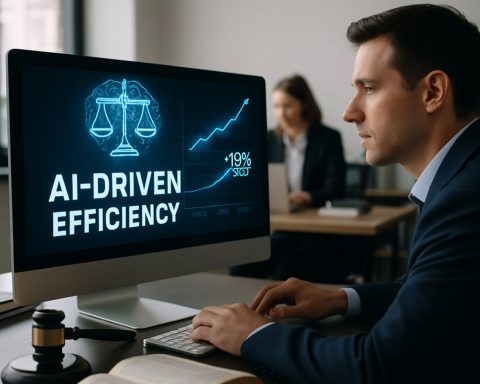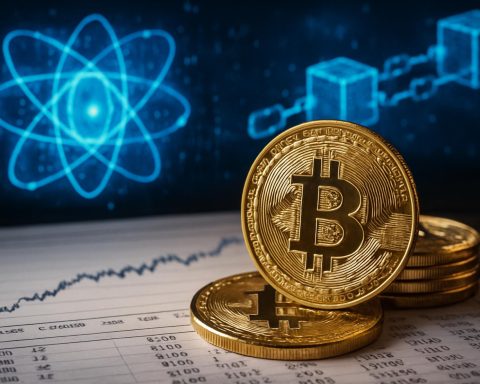- Porsche is advancing sustainable vehicle technology by recycling high-voltage EV batteries into valuable raw materials.
- The recycling process transforms used batteries into “black mass,” from which high-purity minerals like nickel, cobalt, manganese, and lithium are extracted.
- 65 tonnes of black mass have already been produced, emphasizing the potential of waste elements being reborn into new battery cells.
- Porsche plans to incorporate defined shares of recycled content in battery cells for future models, integrating sustainability with performance.
- The initiative aligns with European Union regulations for higher recycled content and traceability by 2031, showcasing Porsche’s proactive commitment.
- This venture not only promotes circular economies but positions Porsche as a leader and responsible innovator in the automotive industry.
Amid the sleek curves and relentless power of Porsche’s iconic line-up, a quiet revolution is humming beneath the surface. In the heart of its latest endeavor, Porsche embarks on a pioneering mission to transform the very bones of electric vehicles into the building blocks of a sustainable future.
Imagine a world where the hum of an electric engine powers both cars and a commitment to the planet. That world edges closer as Porsche’s ambitious pilot project begins to reimagine high-voltage EV batteries not as waste, but as a goldmine of essential minerals. Through a meticulous shredding process, used batteries metamorphose into “black mass,” a raw, unassuming material teeming with potential.
For those wondering about the alchemy behind this process, picture this: through a combination of expert mechanical shredding and state-of-the-art refinement, the black mass is distilled to extract high-purity nickel, cobalt, manganese, and lithium. These critical raw materials, reclaimed with precision, lay the groundwork for new life within the gleaming confines of tomorrow’s battery cells.
As the world charges towards sustainable mobility, Porsche’s commitment runs more than just skin deep. Around 65 tonnes of black mass have already been produced from development vehicle batteries, breathing renewed life into elements that would otherwise languish in obscurity. The carefully sorted aluminum and copper wait patiently alongside the black mass, ready to redefine what it means to be sustainable without compromising Porsche’s legendary performance standards.
The final act in this ambitious trilogy will see Porsche rolling out battery cells with defined shares of recycled content across future models. It’s here that theory crystallizes into practice, and the promise of sustainability finds itself on the open road, echoed in the roar of a Porsche engine.
Beyond cutting-edge technology and dazzling innovation, Porsche’s recycling venture is a profound leap toward safeguarding precious resources and mitigating geopolitical volatility in raw material markets. As the European Union girds itself with regulations necessitating higher recycled content and stringent traceability by 2031, Porsche dashes forward with agility, ready to meet the future more than halfway.
In this brave new world of sustainable luxury and circular economies, Porsche tethers its ambitions to the guidelines of a cleaner, greener promise. The company positions itself not merely as an innovator, but as a beacon of responsibility within the automotive industry. This decisive journey ushers in an era where the elegance of driving meets the pragmatism of sustainability, heralding a new dawn for the clean engines of tomorrow.
Porsche’s New Revolution: How EV Battery Recycling is Changing the Game
Exploring Porsche’s Sustainable Innovation
Porsche’s initiative to transform electric vehicle (EV) batteries into sustainable resources marks a significant step in the automotive industry’s move towards eco-friendliness. By recycling high-voltage battery components, Porsche not only supports environmental conservation but also addresses crucial economic and geopolitical challenges associated with raw material procurement. Here’s a deeper dive into this transformative process.
The Marvel of Black Mass: What It Means for EVs
1. What is Black Mass?
Black mass is the result of precisely shredded and processed used EV battery materials. This substance is rich in valuable elements such as nickel, cobalt, manganese, and lithium, which can be repurposed to create new batteries. By recycling these materials, Porsche reduces reliance on mining for fresh resources, thereby decreasing environmental impact and supply chain vulnerabilities.
2. Steps in Battery Recycling Process:
– Collection and Sorting: Used batteries are collected and sorted based on type and condition.
– Mechanical Shredding: Batteries are mechanically shredded to break down the components.
– Black Mass Extraction: The shredded materials form black mass, which is further refined to isolate high-purity minerals.
– Material Refinement: The extracted materials, such as nickel and lithium, are purified and prepared for reuse in new battery production.
3. Market Trends and Predictions:
According to industry forecasts, the demand for recycled battery materials is expected to grow exponentially as regulations around recycling and traceability tighten. The European Union’s directive for higher recycled content in batteries by 2031 sets a legislative framework that companies like Porsche are already striving to meet.
Why It Matters: Real-World Benefits
– Environmental Impact Reduction: Recycling diminishes the need for new mining processes that often result in significant ecological damage.
– Cost Efficiency: By sourcing critical materials from recycled batteries, automakers can potentially lower production costs.
– Enhanced Energy Security: Utilizing recycled materials mitigates the risks associated with geopolitical disruptions in raw material supply chains.
Challenges & Considerations
Despite its promising outlook, EV battery recycling faces several challenges. The recycling process is complex and requires significant technological investment to ensure efficiency and material purity. Furthermore, industry-wide adoption is essential to realize its full potential.
Porsche’s Role as a Pioneer in EV Sustainability
Porsche’s efforts place it at the forefront of a sustainability revolution in the automotive sector. Its approach not only adheres to emerging EU regulations but also aligns with a broader global trend towards using recycled materials in manufacturing, thus preserving natural resources and reducing environmental footprints.
Actionable Recommendations & Tips
– For Car Manufacturers: Invest in developing efficient recycling technologies and form partnerships with specialized recycling firms to ensure a steady supply of recycled materials.
– For Consumers: Support brands that prioritize sustainable practices. Consider the long-term environmental benefits when purchasing EV models.
– For Policymakers: Promote legislation that encourages recycling initiatives and provides incentives for companies investing in sustainable technologies.
For more information on sustainable automotive practices, visit Porsche.
By adopting such innovative recycling methods, Porsche is not just creating cars; it’s crafting a more sustainable future. As more companies follow suit, the roads of tomorrow could be as green as they are fast.











